This is an exploration of the ideological and psychological components of soft totalitarianism, a creeping reality across much of the Western world. Its existence and ambitions haven’t even been acknowledged by our cultural institutions but the emergence of a dozen new secret state punishments against critics and dissenters demands an explanation, and a psychological analysis. I hope this helps.
Soft totalitarianism is the great secret political shift of our time. It’s the paradigmatic explanation for debanking in the United States, imprisonment in Great Britain, and fines in Germany. In each of these countries, vast and opaque apparatuses of intelligence agencies, tech giants, bureaucracies, and “non-governmental organizations” (which often seem to be very governmental in their funding and operations) cooperate to identify and put pressure on wrongthinkers. And, because the media holds the same attitudes as to what constitutes right- and wrongthink, the media generally says nothing. But the pyramid of power and persecution is actually much larger than these formal examples would indicate. Every academic department that selects out heterodox or masculine or conservative voices (who are in any case a true rarity in many places these days) contributes to the suppression of discussion and the dehumanization of those who hold different views and promote different values.
It should be noted here that the civilizational symptoms of weakness and cowardice and feminization affect us all. They are not ideological. Modern people are shockingly timid and comfortable creatures, and so it is a truly rare specimen who will risk unemployment or social opprobrium in order to defend their ideas or their friends or their sense of right. It is true that there is a bloated hierarchy that now enforces ideological conformity (or at least its expression) but mostly it does this by screening and disincentivizing possible irritants from joining, or rising too high. The actual state mechanisms of soft totalitarianism (which are on a kind of spectrum with the more benign and ubiquitous HR trainings and value statements and feminized hiring structures) rarely have to be deployed. People are frightened, and they are weak. All of us are - critics of the state and supporters. If you’re the kind of person who is willing to risk living in your car for 18 months or being isolated at work or losing an enviable job (even when you have valuable credentials which basically guarantee you employment somewhere) then I salute you… but you are one of an increasingly rare breed. If you think you’re such a person I encourage you to wait until you’re so tested before you proclaim it. It’s easy to be brave and implacable in the abstract. Charging towards danger (or just unemployment) is generally not the kind of thing a person knows that he or she is willing to do until the situation arises. The recent historical record of our institutional cancelations and administrative pressure campaigns and social media mobs indicate that very few people have the courage of their convictions. If you’re not especially disagreeable and resilient and toughened by life there is very little chance that you’re one of them. I would say “I’m sorry” to you… but perhaps you should say it to me. Every major employer in the West is now built to reward people like yourself. Perhaps someday you’ll still have the chance to stand up for a friend in trouble or criticize a terrible policy though.
The point is that the real levers of the soft totalitarian toolbox have to be used but sparingly in modern society. They must be employed only against the confused or the antisocial or the intransigent. Those victims serve as examples to the rest of us: do not oppose the agenda. Do not criticize the activists, or the policies. Do not advertise inconvenient facts. The regime will not take away your life or your freedom… but if necessary it might take everything else. You can stand up for yourself all you like when you’re working in a warehouse, de-platformed, embarrassed and friendless, without a bank account. The regime doesn’t have to kill people now. In the age of digital simulacra there are neater, subtler ways to make critics disappear.
Some people will scoff at the idea of ‘soft totalitarianism’. How can totalitarianism be soft?! If people aren’t being imprisoned en masse or killed then surely labelling a system ‘totalitarian’ is extreme.
I think this misunderstands the changing nature of state capacity and governance. Could a government achieve the same ends that it would have sought in jailing and destroying opponents… by cancelling people? By monitoring them? By de-banking them? After all, what the state craves isn’t human suffering - it’s power. Is it possible that regimes in the West are now so mindful of optics (and composed of many cowardly and self-righteous people) that the old techniques of concentration camps and mass execution have become unacceptable? The hostility towards those with different views remains (veering into frank hatred, in many cases) but the will to kill and enslave is gone. The will to secretly punish and to ruin reputations and livelihoods and socially isolate is alive and well though. It seems to be more robust than ever. It might be worth remarking that these latter strategies are much more in keeping with a kind of feminine palette of social aggression: overt force and violence is to be be foregone (unless absolutely necessary) but the techniques of gossip and coalition building and reputation destruction and passive aggression are fair game. Extended to entire institutions and entire states, these techniques would look very similar to what policymakers across the Western world now do to dissidents - never openly, never honestly, never accountably.
Is it possible that a state in the modern West, desirous of maximal power and control over its population, would default to “gentler” and more sophisticated and more indirect levers of influence and control? After all, the persecutors aren’t concerned with the well-being or happiness (or the civil rights) of their victims. Cancelling someone, debanking them, putting them in prison for nonviolent social media posts, bullying them at work, consciously spreading lies about their character and beliefs - none of these indicate a great deal of concern for the target. Make no mistake: there are many, many people who wish to destroy all those who think much differently than they do, and who would do terrible things to protect their status and prosperity. In some modern organizations most people probably fit these descriptions. They don’t have the stomach to fight or kill their opponents. Luckily, in the modern world such distasteful activities are unnecessary. You can oppress and persecute and silence your opponents using the full force of the state, and you will thereby avoid creating martyrs as well. Take away a person’s job and reputation and friends and, if that doesn’t suffice, their freedom and their ability to make money, and you have successfully unpersoned them. And all of this can be done secure in the knowledge that you (and the organizations you represent) are in the right. After all, the targets of your cryptic punishments believe harmful and bad things. They must be eliminated, for the good of all. Does this sound at all familiar?
:I think the real threat [of a future Totalitarianism] is much more subtle. Most worryingly, it consists of trends are that already in place.
I think that modern digital technologies enable a second form of totalitarianism, which one might call “Soft Totalitarianism.” This is a type of regime that achieves power peacefully and perpetuates its rule with relatively low levels of violence. It is a regime that controls individuals’ lives to an extraordinary level. Mobile devices, social media, close-circuit television, facial-recognition software, digital payment, data mining, national firewalls, and other digital technologies enable a level of control over people’s daily lives that Mussolini, Stalin, Hitler, and Mao would have been envious of.
One might say that Communist China has perfected the prototype for Soft Totalitarianism. Of course, China still practices the old form of Totalitarianism in its genocide in Xinjiang. And the CCP always maintains the potential to spread systematic violence to the rest of the Chinese population if the regime is endangered. But most of the control that the Chinese Communist party has is imposed quietly through digital technology.
In the Western world, we have seen increasing attempts to impose elements of this Soft Totalitarianism on what are seemingly healthy democratic nations.
I won’t focus on the technology and the policy tools of soft totalitarianism here. I will focus on its ideological and its psychological components, for they are already fully in place in our culture. In many places they are dominant.
Soft totalitarianism is the natural endpoint of several ascendant political trends. It requires:
A progressive agenda, demanding extensive social changes and policy interventions (including a deep concern with speech, belief, and values). This agenda is only functional if the people pushing it are absolutely sure (prior to any investigation) that they are right and their opponents wrong. Any doubt and dissent must be stigmatized harshly. Even discussing the agenda must be strictly proscribed. It must be accepted on faith (which won’t feel like faith to its believers in our “rational” age, but it will be) and embraced with the zeal of ambition or fanaticism.
An ideological mode that prioritizes the agenda above traditional norms, institutions, and mechanisms of accountability. Institutions that oppose the agenda must be resisted with every available tool. Ethical commandments that limit the agenda should be ignored. Laws that facilitate the agenda should be held up for celebration and respect… until they constrain the agenda, and then they should be forgotten. Lies, defamations, cruelties, even violence (like riots! Or assassinations) are acceptable, if carried out in support of the agenda
Institutional and technological tools (ultimately controlled by the state, of course) which allow widespread social interference, manipulation, surveillance, suppression, and persecution. Using these tools might be a bit tricky in a constitutional republic, or in a balanced nation with a watchful judiciary, but the judiciary can be penetrated and non-profits can grow and become a vast source of lobbying influence upon the state and the media can be co-opted in such a way that they rarely report on instances of these tools being deployed against enemies of the agenda.
If enough believers in the progressive agenda are created, people will instinctively and unconsciously learn to display a harsh kind of outgroup bias: one ethical standard (permissive and encouraging) for the friends of the agenda, and another (intransigent and irrationally hostile) for its enemies. This will lead to mistreatment (including extralegal punishment) of the enemies seeming natural, intuitive, ethical. In the minds of many regime denizens, decency and compassion will demand hidden cruelty against their enemies. Ambition and conformity (the disinclination of people to oppose their bosses and colleagues and funding sources) should do the rest.
The Psychological Substrate of Totalitarianism
Totalitarianism is, fundamentally, a system which seeks deep control over what its citizens think and express, in order to empower a totalizing agenda. For seem reason, this agenda seems to be necessarily utopian in some way in order to grow a totalitarian movement. Incremental reforms and material improvements don’t seem to be pretexts which are sufficient to motivate people to hate those who think differently. Rather, some idealized future must be held up, and the opponents of that future and its values denigrated and tarred as bigots or vermin or traitors. Controlling personal thought is extremely difficult, of course, but there’s a quirk of human nature that massively assist the totalitarian project: if people can be forced to express things that they know to be untrue or unethical (using indoctrination and threats and, most commonly of all, social and financial incentives) then they will close ranks against those who publicly expose and reflect their lies. People who chose to be cowards will hate nothing so much as the brave individual, for that brave man will be courageous when they are not and he will seem free in a way that they long to be but feel kept from by fear and conformity. They will chafe at the fear (knowing that their choice is in some sense compelled), but they will hate the dissident, and they will happily cooperate to destroy him. Those who choose to echo the lies and distortions will themselves become the enthusiastic foot soldiers of the belief system that they initially doubted, bound together in hatred of their enemies and of everyone who reflects their own conformity and cowardice to themselves. Moral absolutes and ad hominems and catastrophic language (‘splitting’ and crisis analogies and references to great historical disasters, like the Third Reich) will be deployed. But in a sense this is all just a cover, a kind of communal play-acting, meant to reassure the participants of their righteousness and to unify the whole against its scattered and reviled enemies. The real goal is to isolate and destroy the irritants, and to protect the group - an extremely powerful instinct in human psychology. This is a kind of intellectual and ethical mob mentality, and we’ve seen it dozens of times during the past decade, from Evergreen State to the internecine New York Times staff conflict of 2020 to the behavior of myriad academic departments and professional associations. (Here’s a running list of cancel mob incidents).
Organized Loneliness
“What prepares men for totalitarian domination in the non-totalitarian world is the fact that loneliness, once a borderline experience usually suffered in certain marginal social conditions like old age, has become an everyday experience of the evergrowing masses of our century.”
-Hannah Arendt
Hannah Arendt, in her book The Origins of Totalitarianism argued that a 20th century dominated by labor-by the material production and consumption of industrial workers-set the stage for totalitarianism, which endeavored to isolate individuals and repress them under a cloud of fear and conformity while still deriving the benefits of their labor.
It’s an interesting idea, but I think that this analysis is flawed (or at least incomplete). However, if loneliness does play a part, either incidentally or by design, in the erection of totalitarian structures then we might be in trouble. We happen to be the loneliest society that has ever existed, by far.
I tend to look askance at narratives of grand conspiracy (like the idea that the ideologies of Naziism or communism were secret plots to control and harvest the labor of millions). I think the truth is rather more complicated. Ideology takes root according to the currents of time and culture, and individuals (and then groups) come to believe the ideologies, based partly on their own experiences and psychological predispositions. But the ideologies which succeed tend to benefit large organizations, or yield some gain for ruling classes. We can see the emergence of ideologies as a kind of emergent phenomenon - a confluence of individual belief, historical trends, and class incentives.
The ruling ideology of our own civilization seems to fit that mold nicely. It is the idea that the individual is paramount (is, indeed everything) and that every effort must be made to accommodate and sympathize with the individual. This sympathy-based social value system gives especial weight to individuals with certain identity markers and categorizations (the ‘victim hierarchy’), which is now so firmly rooted in our workplaces and our discussions that it’s often invisible to us. Everything in the culture pushes against ideas of personal responsibility, individual agency, or originality. People who desire to live or relate or build outside of these structures are regarded with incomprehension and horror, by none so fervently as the people who advertise tolerance and inclusion as their watchwords. According to our civilizational assumptions, satisfying the dreams and ambitions and whims of the individual is the purpose of life, and these struggles must be won within large and bureaucratic organizations. If you don’t work in one surely you will get your healthcare and your news and your child’s education from one! Anything else would be bizarrely incongruent with our cultural assumptions. It’s not that young people or students are actively discouraged from founding businesses or living in poverty or embracing risk or growing their own food or cultivating their own sense of power and independence. They don’t have to be; they’ve been trained from young ages to attend to money and status, and they’ve been taught (in a hundred subtle and explicit ways) that such things are accumulated along the well-worn social paths: university, internship, consultancy, law office, hospital. We are simultaneously a society which is both radically, unprecedentedly individualistic (in its approach to life and relationships and value) and rigidly conformist (in its professional and financial and status incentives). We’re a people taught that the individual, with his secrets and idiosyncrasies and innate civic value, is everything… and also that individuals must embed themselves within dehumanizing structures: health insurance, graduate school, the housing market, electric vehicles linked to global satellite networks and entertainment/media platforms which advertise telehealth therapy, on-demand, 24/7. Consequently, we have moved away from family and community and toward career and consumption and faceless bureaucracy. We are lonelier than ever, and getting lonelier. If loneliness is a risk factor for totalitarianism then we should be alarmed.
What are the experiences of the people who resist the ideologies of modernity? How do we, as a society treat dissenters and iconoclasts? A liberal regime demands that every person enjoy the right to express his or her own opinions (and that the state and its agents be strictly limited in how it can respond to such people). It’s difficult to imagine how a case could be made in favor of secretive government penalties or organizational persecution, without any available mercy or opportunity to defend oneself. Are we observing these ethical standards of transparency and minimal civic restraint? Or are we dehumanizing dissenters and using a variety of administrative and legal and social tools in order to try to ruin and silence them?
Invisible Punishment
The issues that provoke the response of soft totalitarian regimes are, upon initial review, myriad and diffuse, but a clear pattern emerges with deeper investigation. The ideas that soft totalitarianism exists to defend are the ones upon which the bureaucratic superstructure is built:
The ethical prioritization of group victimhood. This is immensely important for the bureaucracy, for the bureaucracy is constituted (ostensibly) to be the promoter and defender and helper of these groups, and so any doubt that these groups need help (or that they’re worthy and desirous of it) must be ruthlessly suppressed. This coincides nicely with the psychological tendencies of the professional managerial elite (the builders and maintainers of soft totalitarianism, and its direct beneficiaries) who see themselves as “allies” of these groups.
PMC members justify every equivocation and discrimination and cruelty with the idea that they are punishing the bad people, and that these people are bad because they’re not sufficiently supportive of these wonderful and cherished avatars of purity: marginalized groups. Nothing weds people to an ideology like an inducement to do terrible, cowardly, dishonest things in its name. Nothing gets people on board like the idea that their program is, in some distant and abstract sense, better for everyone. Of course the individual members of these marginalized groups are all around, and are generally neglected or ignored (as individuals) by the denizens of soft totalitarianism. To the adherents the groups members are not real (as people) and their needs aren’t real human needs. They’re merely ideological signifiers, and ciphers upon which the ideological structure is constructed. They lend it energy and conviction, which it then uses to crush its enemies and gain more power for itself.
The legitimacy and competence of the state and its minions to effect positive social change. This point is less psychologically satisfying for PMC rank and file. It’s dryer and more policy-oriented, not the kind of thing which will generally arouse as many angry tweets on X. In Germany, people can be surveilled and arrested and fined (and imprisoned, if the fines aren’t paid) for belittling or criticizing political leadership. In Canada, the Trucker Protests instigated the government to invoke the Emergency Powers Act to expand its tools of punishment, and the motivations and messages of the protesters were systematically distorted by captive media. Even now it’s difficult to find honest reporting about this event. (2.) might not arouse as much passion and vitriol among the believers of regime narratives, but it is likely to bring a secretive and heavy-handed government response, and defamatory treatment by the media. This is the power structure mobilizing to defend itself as the old legal and policy restrictions on government behavior become weakened through cynicism and personal ambition and ideological bias.
Punishment used to be visible, often public. There was value in this, for it bolstered the deterrent effect and established the regime’s claim upon power. The right to punish someone is as good a definition of sovereignty and political legitimacy as any. Now punishment is indirect, secretive, couched in legal language or human resources doublespeak, or simply not acknowledged at all. People who are debanked report simply no longer being served by their financial institutions. No one informs them that this heavy penalty has been levied or why, and there are no mechanisms for review or appeal. It can’t be adjudicated in the courts (for it’s an extra-legal punishment, and one that is worse for many businesspeople than corporal punishment or a modest prison sentence) and it won’t be reported on by the media. No one is even sure how many of these cases have been instigated by the state. Surely the state would either be honest about who it was punishing and why? Or it would establish that it wasn’t punishing anyone, and these actions were being independently taken by financial institutions (which seems doubtful)?
Some Examples:
From last month by
:[T]he newest, most irregular German holiday… consists of the police conducting coordinated raids on and interrogations of ordinary people who are alleged to have said rude things on the internet:
On Tuesday morning police across Germany conducted raids targeting “hate speech and incitement” on the internet. According to the news agency dpa, there are currently 170 operations underway, including house searches and other measures. Those accused are charged with insulting politicians and inciting hatred
From last month (in The Free Press) by Dominic Green:
On Monday, Britain sentenced Hamit Coskun, 51, to pay £240 (roughly $325) for burning a copy of the Quran and shouting “Islam is religion of terrorism” outside the Turkish embassy in London.
Coskun’s behavior was obnoxious, but not illegal: Britain abolished its blasphemy laws in 2008. His case shows that they are returning under the guise of maintaining “public order.” In a tense and divided society, free speech is a luxury that the government cannot afford.
Coskun got off with a fine. Lucy Connolly, prosecuted under the same law, was not so lucky.
Lucy Connolly is Britain’s foremost political prisoner. Connolly, a 41-year-old childminder and the mother of a 12-year-old daughter, is currently serving a 31-month sentence for “stirring up racial hatred” in a single tweet that she deleted less than four hours after posting. On May 20, a court rejected Connolly’s application to appeal.
Connolly’s case is the latest in a series revealing the decline of free speech in Britain and the rise of a “two-tier” justice system that treats ordinary people like enemies of the state.
Just an aside, Mr. Coskun was attacked by two random passersby during his peaceful demonstration (despite being outside for only a few minutes), including one who rushed out of the Turkish embassy brandishing a knife and a bicycle delivery person who struck and kicked him. Neither of these people were arrested or prosecuted.
Referring to a German retiree, who was given a 75-day prison sentence for posting a fairly ambiguous political slogan (Alles für Deutschland) in May,
writes:This is the latest in a long string of speech crime prosecutions in Germany, as our political establishment collaborates with police and prosecutors to intimidate ordinary people who say untoward things on social media. Last November, another German pensioner from Bavaria had his house raided by police for the crime of sharing a meme on X that called former Economics Minister Robert Habeck a “moron.” Others have been prosecuted for such trivialities as tweeting the poop emoji at a cabinet minister, calling Greens fat and stupid, imprecisely quoting important politicians, and reproducing a picture of former Health Minister Karl Lauterbach with his hand raised at an unfortunate angle. In most such cases, convicted speech criminals receive fines (however ruinous), although harsher sentences are not unheard-of.
What makes this most recent prosecution noteworthy, is the fact that the offending tweets were referred for prosecution by the so-called “trusted flaggers” at the creepy government-funded anti-hate organisation calling itself REspect! The EU Digital Services Act has helped empower the schoolmarm scolds at REspect! to police the German internet for “disallowed speech,” and with our Bavarian pensioner they claim yet another scalp. This industrial operation in crying to teacher is headed by a literal Egyptian Islamic scholar named Ahmed Haykel Gaafar, and on their website they claim to have referred nearly 25,000 cases of criminal speech for prosecution over the years.
Examples stretch back years, usually completely unreported by the legacy media. Isn’t it odd? Secretive, unaccountable bureaucracies victimizing and ruining civilians for non-crimes? That seems like something an attentive media might be interested in. But those civilians are the bad people, you see (or at least: they’re in opposition to the good ones) and so we’re not to care about them. This is the dehumanizing logic of totalitarianism, which is now much more prominent on the left than on the right.
Here’s an article about the de-banking of politically controversial figures (or merely those related to them) by
:Former first lady Melania Trump alleges in her new memoir that both she and her son, Barron, were debanked. “I was shocked and dismayed to learn that my long-time bank decided to terminate my account and deny my son the opportunity to open a new one,” she wrote. (Trump’s email provider also declined to continue providing her service.)
…
But it’s not just Trump supporters. Also debanked have been a number of Christian charities, including Indigenous Advance Ministries, a Memphis-based charity that does philanthropic work for orphans in Uganda, and Family Council, a pro-life charity based in Arkansas. According to Democratic lawmakers, many Arab and South-Asian Americans—who are considered “high risk” because of being Muslim—have been debanked, too.
“In the financial sector, you have layers and layers, one on top of the other, of laws and regulations that were designed to ensure the system is not aiding and abetting any wrongdoing, but now you have the government increasingly using those tools to target not just obvious wrongdoers but political foes… What banks understand is the government just doesn’t make suggestions. When the government suggests something, everybody understands that’s an order, and that’s how banks respond.”
Then there’s the infamous example of the Canadian “Trucker Protest", which was swiftly hammered by the Canadian government in a multitude of ways. Again: they’re on the wrong side of important issues, and so they must be punished and if necessary erased from the public conversation. “Safety” demands it.
In that case, The Emergencies Act was invoked (illegally, according to a later judicial ruling) in order to use supernormal means to limit and hurt the truckers and their supporters. Jan. 6th protesters. Activist parents of schoolchildren. Pro-life organizers. Whistleblowers. Academic dissenters. Etc.
All of these conflicts have several things in common:
They were: between coalitions of citizens fighting what they saw as various instances of government overreach, and the state and its supporters (academics, journalists, agency heads, corporations).
For supporters of the state and its agents, the activists and their complaints were considered prima facie illegitimate. They couldn’t be right, and their wrongness justified a kind of punishment, which veered between sober and gleeful, but which was never openly acknowledged or defended by its instigators.
Extralegal and unusual means were deployed against them, not to punish them for crimes (there are avenues for doing that) but to bury them in prisons in defiance of habeas corpus, to restrict their access to modern financial services, to silence their voices (and their online presences), and to mark them as “off limits” to ambitious and pro-social people (and to journalists and bureaucrats). Being a Canadian trucker automatically earned you the derision and hostility of a huge share of the Canadian population, most of whom were operating on the bases of a few half-read articles and some vague generalizations. Being present at Jan. 6th earns one years in prison or loss of employment or social ostracism, even if you simply walked through some doors being helpfully opened by police in the midst of a cheerful crowd. It’s not really about the actions or the decisions… it’s about the beliefs. People who oppose the catastrophic Canadian COVID policies, or the theory that the 2020 election was illegitimate in some sense, are dangerous and should be isolated and punished, the reasoning goes. Even if they’re decent and intelligent and honest people who commit no crimes. That’s the logic of dehumanization, and it exists on both wings of the political spectrum… but the left has been much more zealous and prolific in using institutions to prosecute their prejudices.
That is soft totalitarianism.
:it’s obvious once you see it, but most people don’t, at least not at first. the carpet bombing of repetition, especially if you can capture the commanding heights of media and “authoritative sources” and “credentials” just proves too great a weight for the majority of consensus seeking humanity to resist.
the cultivation of “contempt of enemy” takes root and flowers into the sort of scorn and disdain that prevents the very associations that might discover commonality. it ensures that you will never think well of these people, that you’ll never speak to them, that nothing can stop the deepening of disgust as you project all the worst things about yourself onto others.
every thing you see them do, no matter what it is, becomes instantly contemptible, more fodder for the prejudice mill.
this is how you create a divided society, a society inhabiting realities with no intersection nor possibility of a bridge.
In Otober of last year,
asked How can anyone doubt the federal government is systematically violating the First Amendment?The answer of course is that no one who really searches the available information could doubt it - but most people don’t search. Most people operate on tribal affiliation and prejudice. Most soft totalitarians (and their supporters, who simply tend to be normal progressive people convinced that critics of federal power are innately bad in some sense and must be stopped) don’t bother digging into the details, of anything. Are protesters against Covid vaccines? Well then they’re idiotic and dangerous, and they should be silenced (and their kids taken, maybe).
The fact that the speculative warnings of these protesters turned out to be quite valid is irrelevant now. There are different issues now before us, and the same people maintain the same moral certainty on the basis of the same weak and general evidence. And they regard opponents with the same enmity and disgust. Punish them. Silence them. Make them disappear. We’ll all be better off.
There are thousands more cases like the ones above. For example, there was an Irish schoolteacher who served many months in prison under a contempt of court ruling because he refused to refer to a student using pronouns that didn’t accord with the child’s sex.
It should be noted that many of the most flagrant examples of this secretive system of pressures and penalties have occurred outside of the United States, but that’s not because of some benign domestic political consensus. It is simply a fact that without Donald Trump and his minions Americans would be suffering these fates, and probably worse. It is a certainty that progressives in this country would love to have this kind of powers over their critics and opponents. All of the rhetoric about ‘misinformation’ and ‘hate speech’ and dangerous online content are simply coded expressions (for everything is coded with these believers) reflecting their deep-seated sense that their ideas are so important and righteous that the power of the state should be brought to bear upon dissenters and doubters. There is no consideration given for the rights of these doubters and dissenters… nor for the possibility that they could be, in many cases, correct in their criticisms and observations. Correctness is ultimately irrelevant for the believers, as are individual rights. All that matters is the agenda. The agenda overrides truth, honesty, norms and civil rights, for the agenda is the basis of the believers’ power but also the foundation of their worldview and a kind of anchoring point for their psychological self-conception: these people want good things (for marginalized groups, the most important people in our society). Everyone who opposes them therefore wants bad things and are therefore bad people - even ethically scrupulous schoolteachers and grieving mothers and inoffensive retirees.
This is the final insight of totalitarianism: it is ultimately the erection of a new moral hierarchy. Those far away from and disfavored by power are ‘bad’ (even if they’re decent and thoughtful and productive people), and those who are close to power and preferred by it are ‘good,’ even if they’re cruel and cynical and grasping and dishonest. The same perverse hierarchy has grown up around power centers in every totalitarian society. After the power structure begins enforcing its dictates, it is the public attitudes and opinions of citizens which determine their moral standing, not their character or their actions. This, then, is the fundamental lie of totalitarianism, which every individual must assent to and proclaim: evil people are good… and good people are evil. And evil people must be eliminated from the machinery of society. The agenda demands it.
The Orwell-Huxley Dichotomy
The modern prophets of dystopia in the 20th century emerged shortly after totalitarianism coalesced. There was a new threat looming, determined to devour liberty. It had triumphed across much of the world and popular values (equality, development, nationalism) were being used to feed and to conceal its antecedents (Cambodia, East Germany, North Korea, China, etc.). George Orwell and Aldous Huxley imagined very different visions of the ways in which a modern, liberal society could veer towards a stable condition of antifreedom.
Neil Postman, in Amusing Ourselves to Death - Public Discourse in the Age of Show Business writes:
"We were keeping our eye on 1984. When the year came and the prophecy didn't, thoughtful Americans sang softly in praise of themselves. The roots of liberal democracy had held. Wherever else the terror had happened, we, at least, had not been visited by Orwellian nightmares. But we had forgotten that alongside Orwell's dark vision, there was another — slightly older, slightly less well known, equally chilling : Aldous Huxley's Brave New World.
Contrary to common belief even among the educated, Huxley and Orwell did not prophesy the same thing. Orwell warns that we will be overcome by an externally imposed oppression. But in Huxley's vision, no Big Brother is required to deprive people of their autonomy, maturity and history. As he saw it, people will come to love their oppression, to adore the technologies that undo their capacities to think.
What Orwell feared were those who would ban books. What Huxley feared was that there would be no reason to ban a book, for there would be no one who wanted to read one. Orwell feared those who would deprive us of information. Huxley feared those who would give us so much that we would be reduced to passivity and egoism.
Orwell feared that the truth would be concealed from us. Huxley feared the truth would be drowned in a sea of irrelevance. Orwell feared we would become a captive culture. Huxley feared we would become a trivial culture, preoccupied with some equivalent of the feelies, the orgy porgy, and the centrifugal bumblepuppy.
As Huxley remarked in Brave New World Revisited, the civil libertarians and rationalists, who are ever on the alert to oppose tyranny, "failed to take into account man's almost infinite appetite for distractions." In 1984, Huxley added, people are controlled by inflicting pain. In Brave New World, they are controlled by inflicting pleasure. In short, Orwell feared that what we hate will ruin us. Huxley feared that what we love will ruin us. This book is about the possibility that Huxley, not Orwell, was right.
To add to Postman’s analysis of media and entertainment and monetized distractions, I would submit that the prevalence of psychotropic pharmaceuticals, the indulgent and immature trends in mental healthcare and media and culture, the civilizational shift away from family and community and towards consumption and career, and the inanity of modern politics (in which everything meaningful seems to be distorted and deflected, such that we almost never have frank conversations about policy challenges like border security or criminal justice or public schools) all augur poorly for our civilization. Huxley’s vision was of a civilization so wrapped up in the satisfaction of individual comforts and desires that the old drives towards growth and exploration and conflict and discovery had been thoroughly suppressed. People are, by modern standards, pretty happy in Brave New World. Yet, by our measures, their lives seem deeply meaningless, and that meaninglessness is by design - engineered by corporations and social systems and drug researchers and planning commissions.
It is possible that our increasingly ‘developed’ and technological and connected world has made a kind of reflexive calculation: the traditional social realities of masculine men, vigorous discussions, growth through struggle and discomfort, consequential competition, and the fundamental uncertainty and mystery of lives freely lived are no longer adaptive. They must be repressed and re-engineered. Those thinkers and activists and entrepreneurs and writers who promote and explore such themes should be ostracized and cut off from money and status and their online visits throttled. If that doesn’t work, they should be punished by agents of the state. It’s possible that the examples of soft totalitarianism given here are merely parts of the tip of a great iceberg, a kind of civilizational pivot. Perhaps the increasing isolation and narcissism of the old, the cultivated status-seeking and fragility of the young, the infantilization of both children and adults, and a growth in the number of people who seem to believe (without ever considering or debating the matter) that every discomfort, challenge, failure, and lack in society should be addressed by a huge bureaucracy - perhaps these are all part of the same trend: the collective fleeing from discomfort and uncertainty. Maybe every culture would have made these choices, if they had our gifts and opportunities (for it is human nature to avoid misfortune and discomfort as much as possible). Maybe our culture is simply distinguished from the historical precedents by finally having the means to begin to make this drab and uninspiring dream a reality.
I know that many cultures would resist these moves, though - at least for awhile. Traditional sources of meaning (faith, family, duty), masculine conceptions of honor, and feminine conceptions of familial service would demand it. Fortunately, for today’s soft totalitarians, those cultural meanings are shadows of what they were even 50 years ago. You can join in the resistance to these modernizing trends, whoever and wherever you are, but there may be a cost. You might lose your job or shed friends en masse or you might be secretly surveilled by your state or be defamed by online critics or even be fined and imprisoned. All of those penalties are part of the apparatus which we call soft totalitarianism. They are the result of powerful members of the managerial class feeling indisposed to debate and convince, and choosing instead to use levers of harm and status penalty and coercion to promote their agenda. Your choice is the fundamental human social dilemma, which many generations are spared from confronting: do the right thing and live your values, or attend to the status and financial and administrative incentives erected by those in power. If you choose the first option you will likely find yourself in a small and beleaguered minority. It’s never an easy choice, and the powerful are trying to make it as difficult and costly as they can (without attracting the attention that torture or mass imprisonment of their opponents would generate). Ultimately it should be an easy choice, though, if you really think about the long term. The choice is: to live a meaningful and courageous life, regardless of the consequences… or to see everything you love and value eventually disappear, perhaps in front of your eyes. How far are you willing to walk, down the road to serfdom?





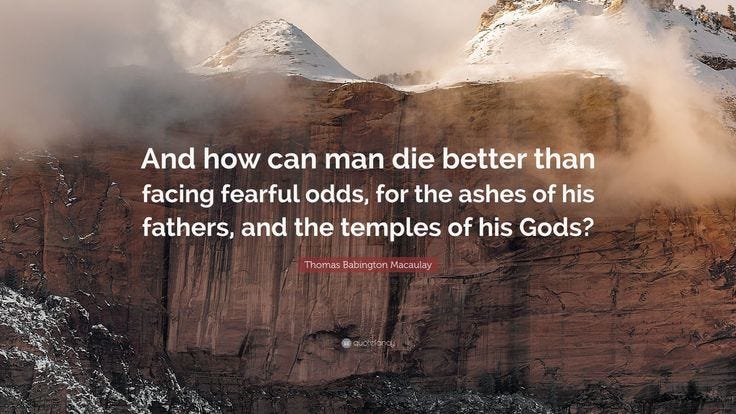
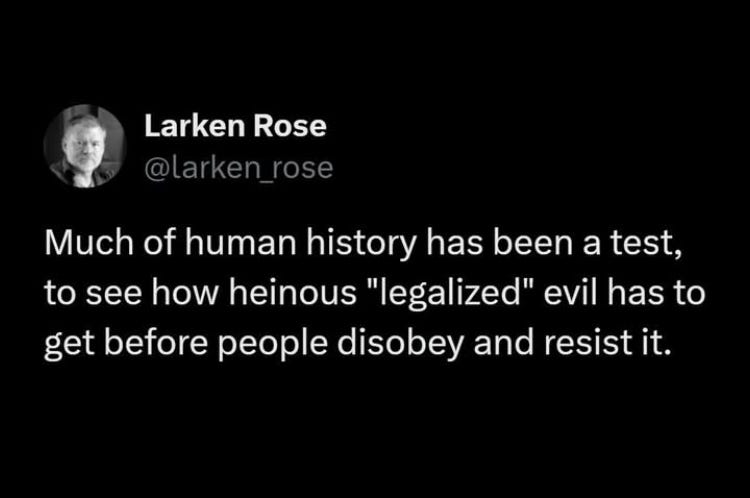

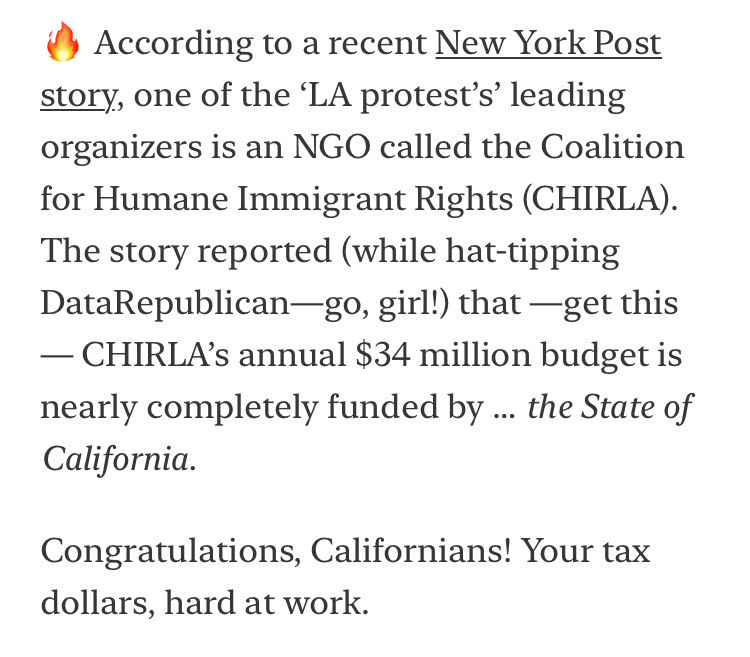


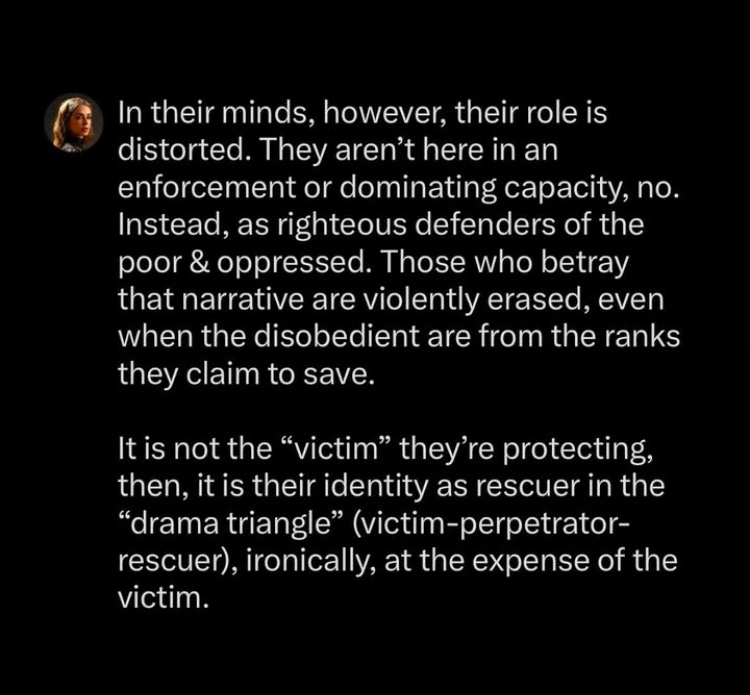






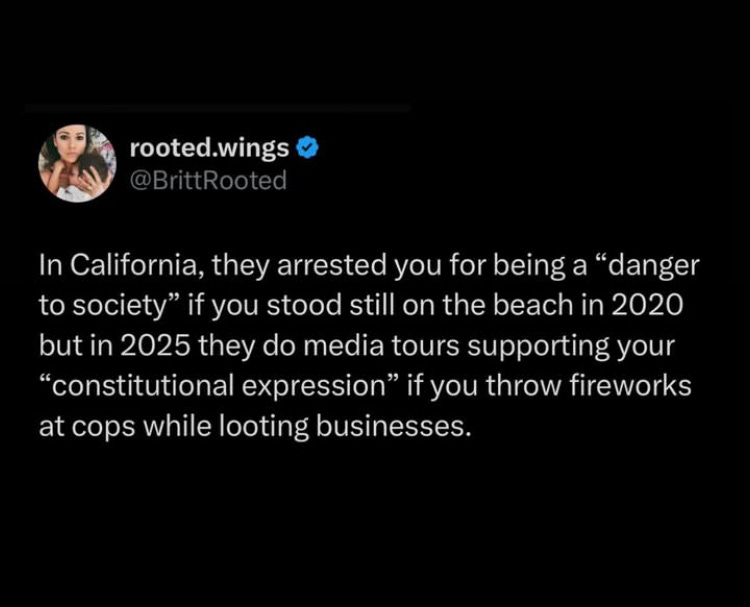


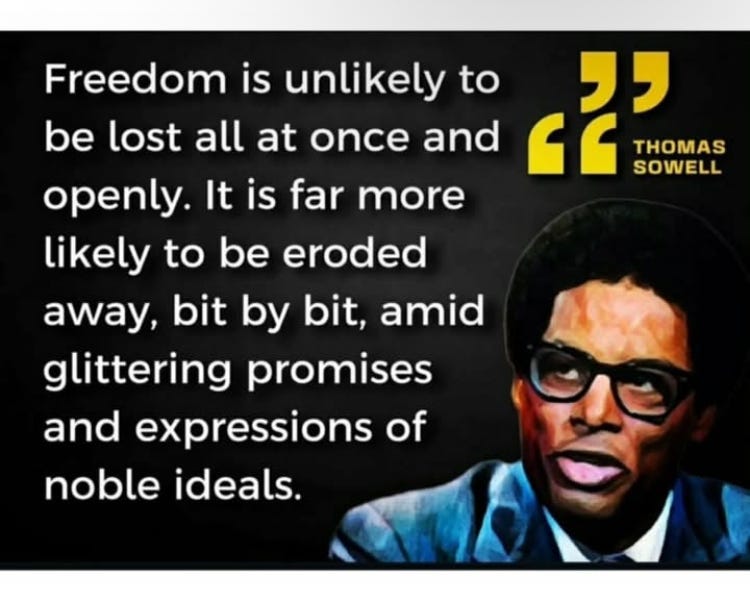








Twenty years ago a friend of a friend remarked that in the future people would not be sent to prison but instead banned from the internet. As time goes by this looks like a more and more effective threat to keep anyone from dissenting.
Nicely put together and comprehensive. See also 'verbal delict' in ex-Yugoslavia http://cultural-opposition.eu/registry/?uri=http://courage.btk.mta.hu/courage/individual/n222586. keep up good work!